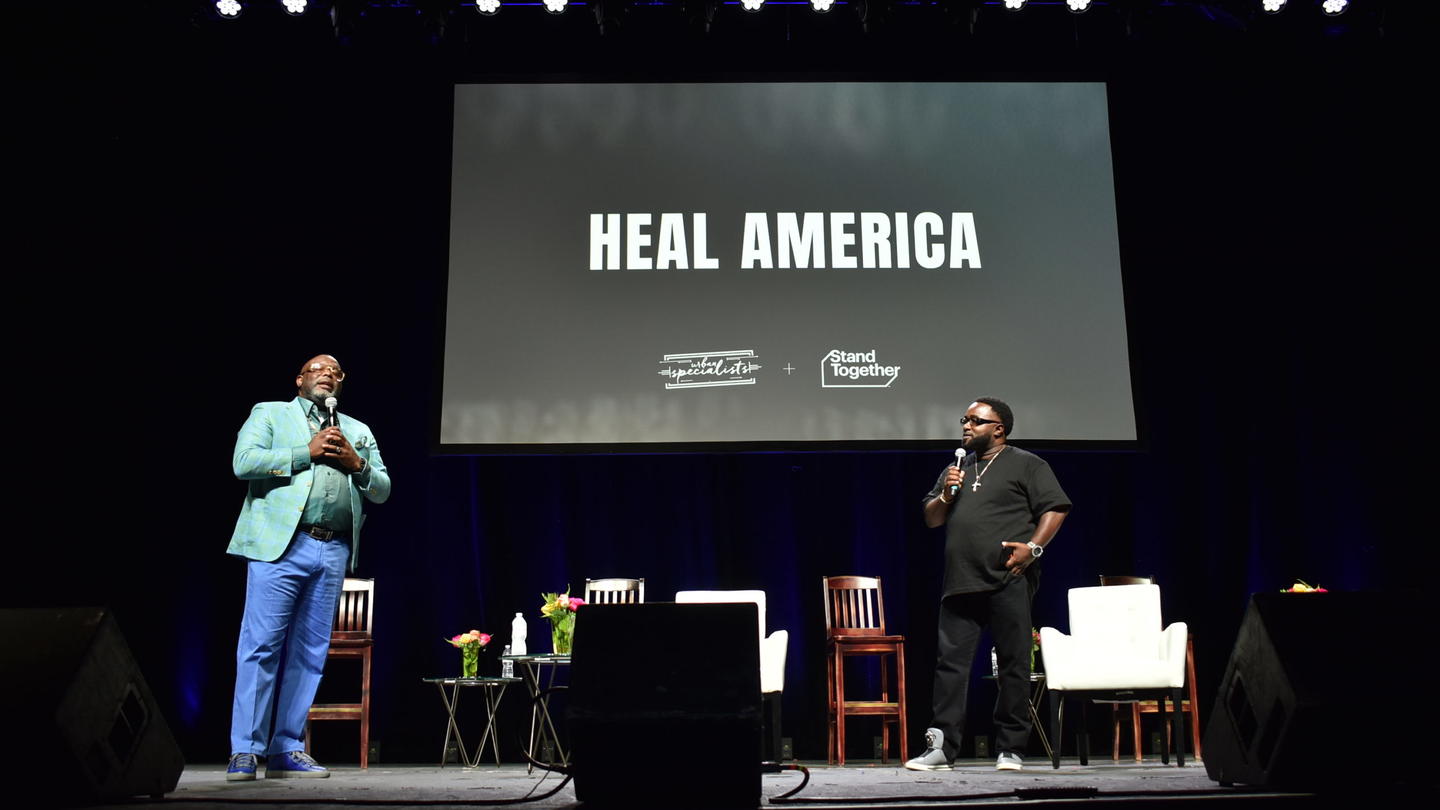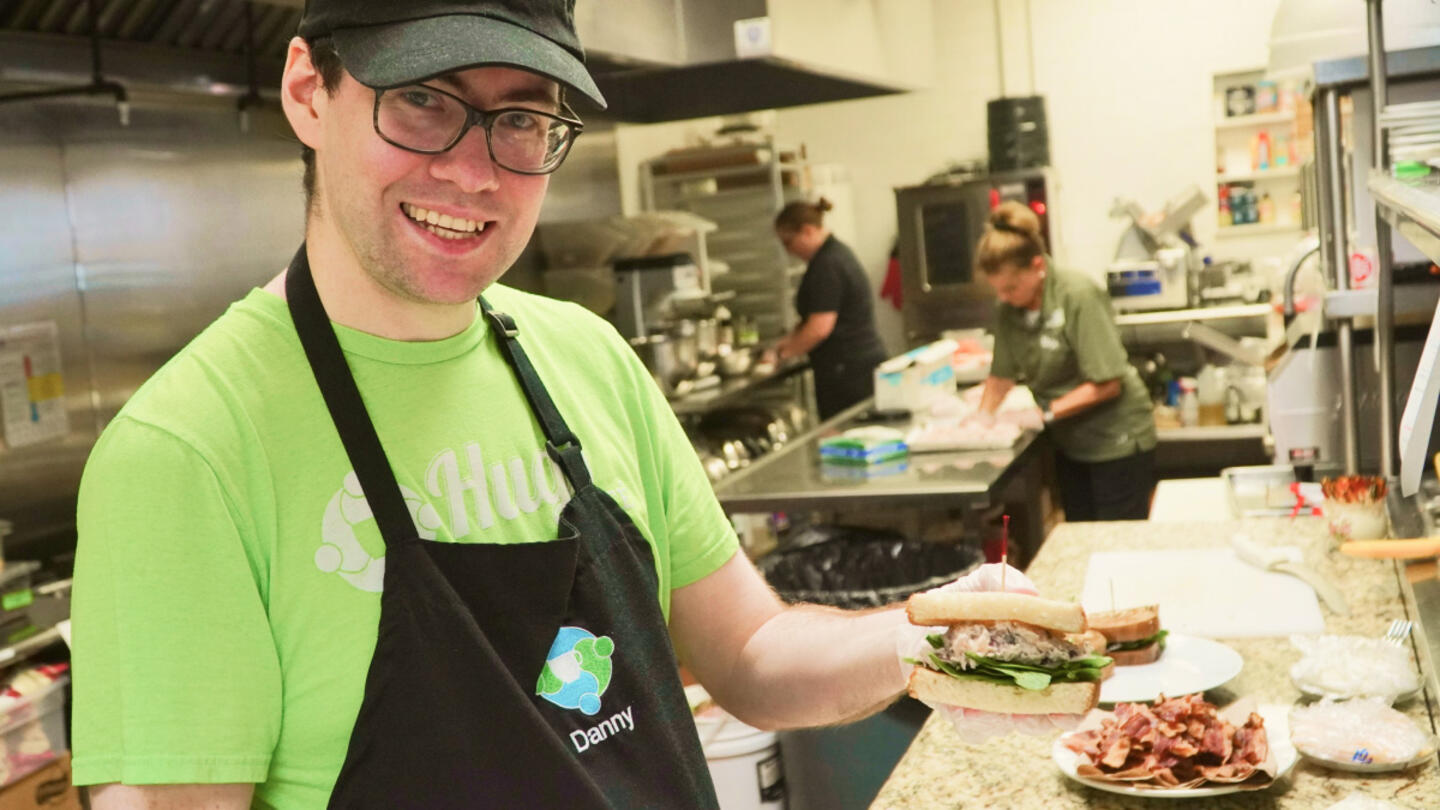"The idea of America needs to be embraced to its fullest potential." That was the message delivered by Bishop Omar Jahwar, CEO and founder of Urban Specialists and host of "Heal America: A Course Correction Conversation on Race, Citizenship, and Humanity," held in Dallas on June 24 and streaming nationwide.
Presented by Stand Together, the event featured a diverse group of leaders engaging in an honest discussion about race, police relations, and what role each of us can play during this critical moment in our country's history. Speakers included Baton Rouge Police Chief Murphy Paul, founder of Raising Canes Todd Graves, WWE star Titus O'Neil, NFL Hall of Famer Deion Sanders, and criminal justice reform activist Alice Marie Johnson reflecting on why they felt called to step up in the aftermath of the tragic killings of George Floyd, Ahmaud Arbery, Breonna Taylor, and others. Civil rights champion DeForest "Buster" Soaries Jr., offered a powerful video message.
Former professional basketball player Stephen Jackson had a personal connection to George Floyd, having become close friends as children growing up in Texas. He explained that he chose to speak up after Floyd's death because, in his words, "I want justice for my brother."
Mark Cuban, owner of the Dallas Mavericks, expressed hope that these tragedies could help create "an inflection point" about injustices. "Somebody needs to start that conversation…It's just the right thing to do," he said.
Deion Sanders made it clear that each of us can help achieve change, saying "challenge the person next to you to just make life better. Do your part. Play your position. Play your role."
The conversation continued with a frank discussion about race relations in America.
Jermaine Hall, editor in chief of LEVEL, explained that he sees a lot of similarities between today and moments in American history like the Los Angeles riots. The most important difference though, as he put it, is that "this time … the allies are marching with us."
Others acknowledged that the need for unity extends beyond civil protests. Todd Graves, founder and CEO of Raising Cane's Chicken Fingers, argued that business leaders can make a conscious effort to recognize the value of diversity — both in the workplace and in their communities. As he said, "It can't be just talk, and it can't be just once in a while," because, although this kind of ongoing commitment is difficult, it produces exceptional results.
And in one of the most moving exchanges of the night, Ryan Tillman, a law enforcement officer from Los Angeles, and Leon Ford, a survivor of a police-involved shooting, discussed the critical need for accountability in policing. Tillman expressed his commitment to helping more officers understand that their most important duty is serving their communities and protecting the people who live there.
The discussion ultimately turned toward practical ways to address racism that has become institutionalized through public policy that has a disproportionate and negative impact on racial minorities — beginning with changes to policing across America.
Alice Marie Johnson, a formerly incarcerated individual and now a leader in the criminal justice reform movement, explained that the First Step Act, a landmark law that addressed significant issues with federal sentencing, demonstrates that progress is possible in the criminal justice system. CEO of Reform Alliance and CNN commentator Van Jones agreed, claiming that "though we may reason differently, we can arrive at the same conclusion."
Finally, Chief Murphy Paul of the Baton Rouge Police Department, who was in charge of the city when Alton Sterling was killed, spoke about the need for a comprehensive approach to improve policing, including additional accountability, more targeted training, and greater involvement on the part of communities.
The "Heal America" event was the beginning of a conversation that will help make further progress toward healing America.
Learn more about Stand Together's issue areas.




